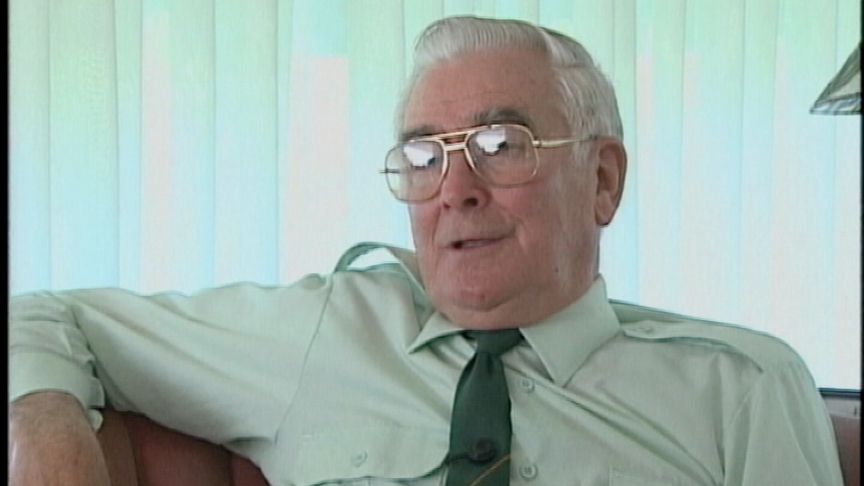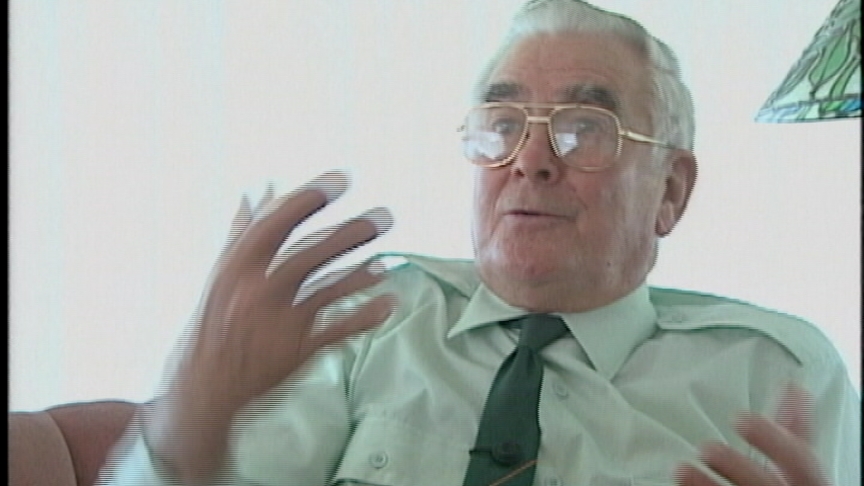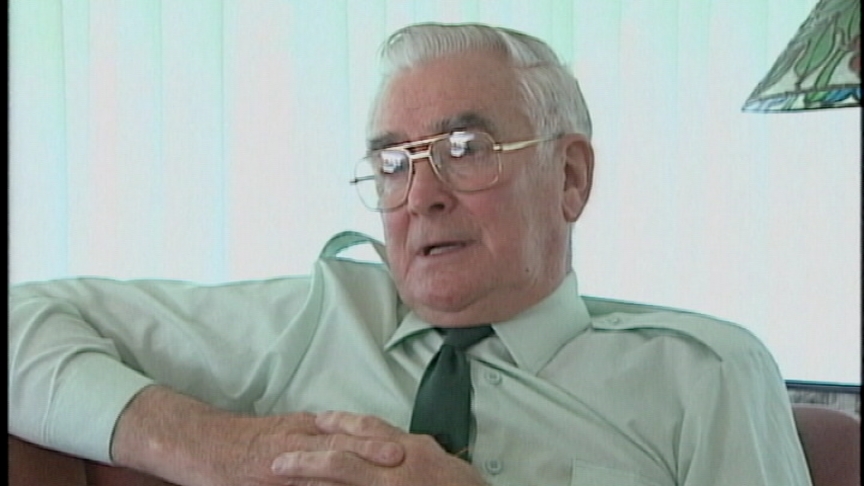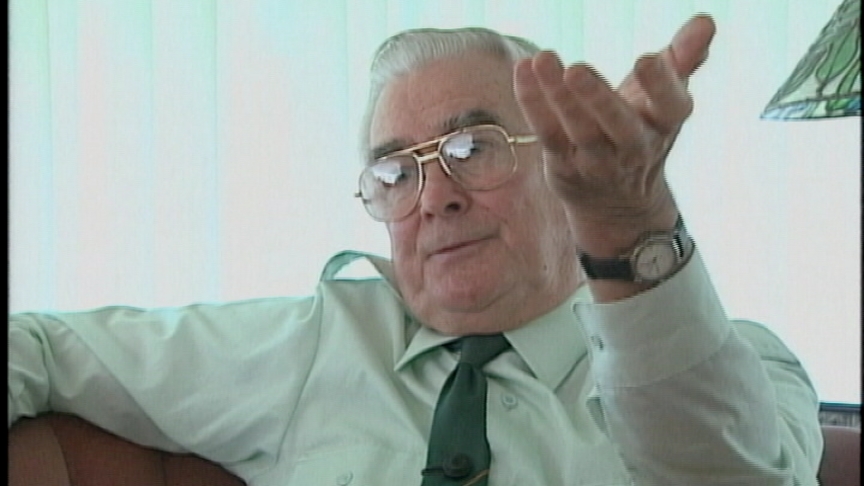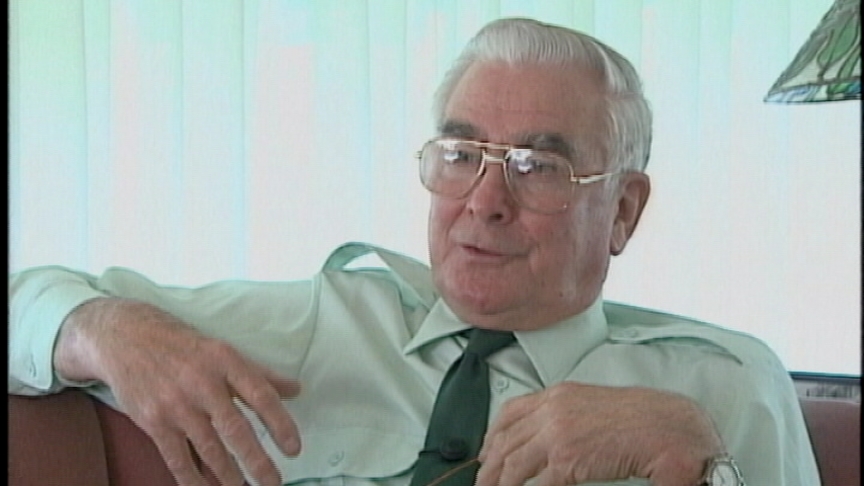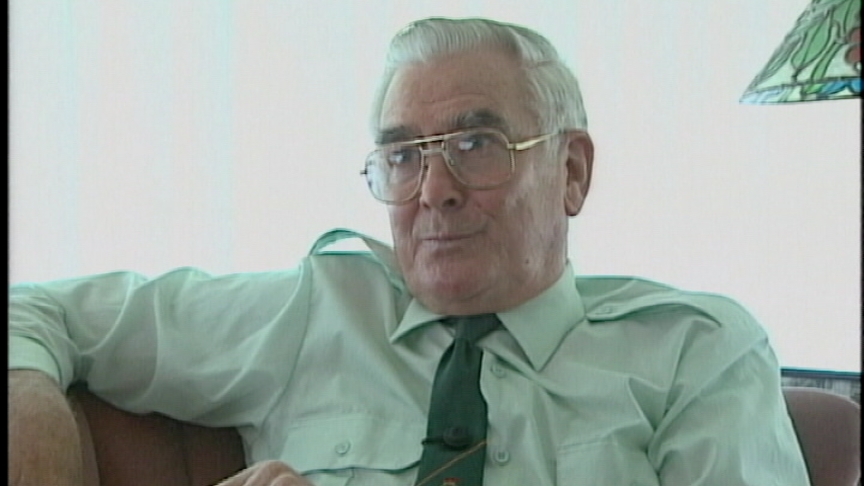Difficult Decisions
Heroes Remember
Difficult Decisions
Transcript
Description
Mr. Pitts speaks about the apprehension felt when reporting one of his infantry soldiers who refused duty.
Herbert Pitts
Mr Pitts was born in Nelson, British Columbia in June of 1929. After graduating from high school, he entered a four-year program of the Canadian Services College at Royal Roads, graduating from the Royal Military College in June 1952. He was commissioned as a Lieutenant, in the Lord Strathcona's Horse (Royal Canadians). On arrival in Korea in July, he served for a year as an Infantry Platoon Commander with 1st and 3rd Battalions of Princess Patricia's Canadian Light Infantry. He was awarded the Military Cross for Gallantry and Leadership with that Regiment. Mr. Pitts remained in the Forces serving with The Queen's Own Rifles of Canada and the Canadian Airborne Regiment. He traveled extensively during his service, retiring as a Major General from National Defence Headquarters in 1978.
Meta Data
- Medium:
- Video
- Owner:
- Veterans Affairs Canada
- Duration:
- 2:58
- Person Interviewed:
- Herbert Pitts
- War, Conflict or Mission:
- Korean War
- Location/Theatre:
- Korea
- Branch:
- Army
- Units/Ship:
- Princess Patricia's Canadian Light Infantry (PPCLI)
- Rank:
- Platoon Commander
Related Videos
- Date modified:



